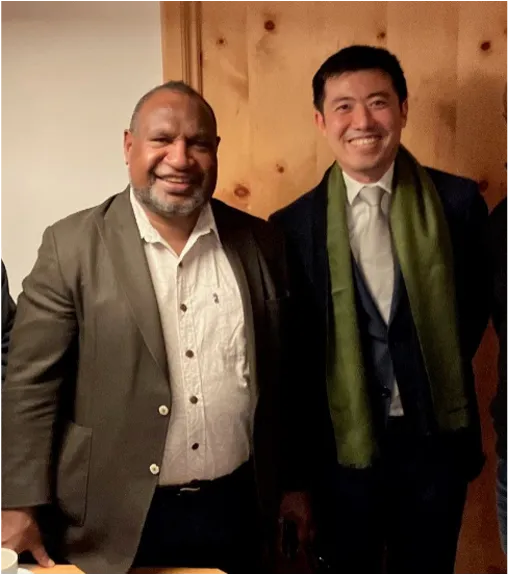
The World Economic Forum (WEF) in Davos marked my fifth participation, and once again, I was overwhelmed by the unique energy of this event.
Bringing together the most influential leaders from different industries and countries to discuss the world’s most pressing issues, this event serves as a barometer of global affairs.
While the official number of invitees is 3,000, more than 30,000 people visited the small Swiss town, participating in side events beyond the official sessions.
This year, I attended as a supporter for our CEO and Board Chair, witnessing what became one of the most historically attended years.
Today’s world is filled with geopolitical crises, unstable governments, and natural disasters, deepening uncertainty.
As history has shown, the greater the uncertainty, the more people gather in Davos to assess global trends, gain insights, and build networks.
This year’s theme, “Rebuilding Trust in the Age of Intelligence,” highlighted the transformative impact of AI and emerging technologies on industries and society.
Below, I share insights from some particularly striking sessions.
1. High Uncertainty Around the New U.S. Administration
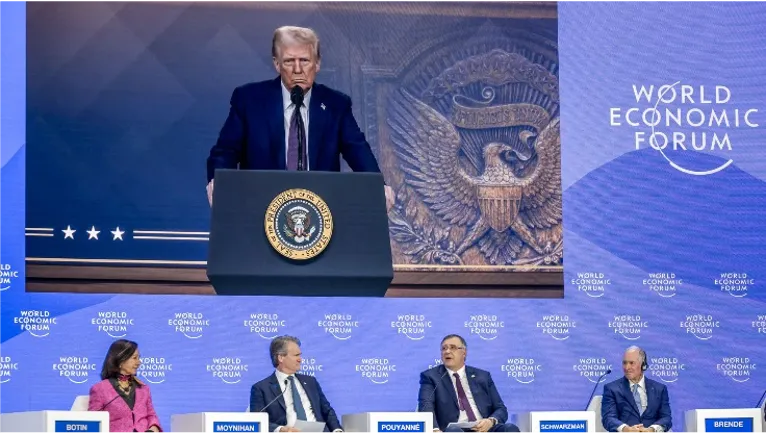
Davos coincided with the inauguration of the new U.S. president, who participated via televised address.
However, the speech stood in stark contrast to the spirit of Davos.
It emphasized expanding fossil fuel use, withdrawing from the Paris Agreement, and even suggested raising tariffs while downplaying efforts related to diversity, equity, and inclusion (DEI).
Many participants remained silent, though some business leaders and nations reaffirmed their commitment to multilateralism and international cooperation.
Climate change remained a key concern, and the widening gap between nationalistic policies and collective global action became more evident.
2. Climate Change is Real and Requires Immediate Action
The Global Risks Report, released annually at Davos, presented a stark reality based on insights from over 900 experts.
While short-term risks are dominated by geopolitical concerns, four out of the top five long-term global risks are environmental.
Companies no longer see sustainability as just a moral obligation but as an economic necessity.
The risks of inaction—ranging from supply chain disruptions to an insurance crisis—have become impossible to ignore.
Many businesses are now integrating sustainability into their models, recognizing that decarbonization enhances both resilience and competitiveness.
One of the most striking perspectives came from the insurance industry.
Some executives warned that climate-related disasters could soon make it impossible to provide home insurance in high-risk areas.
This underscored the urgent need for systemic solutions to mitigate environmental risks.
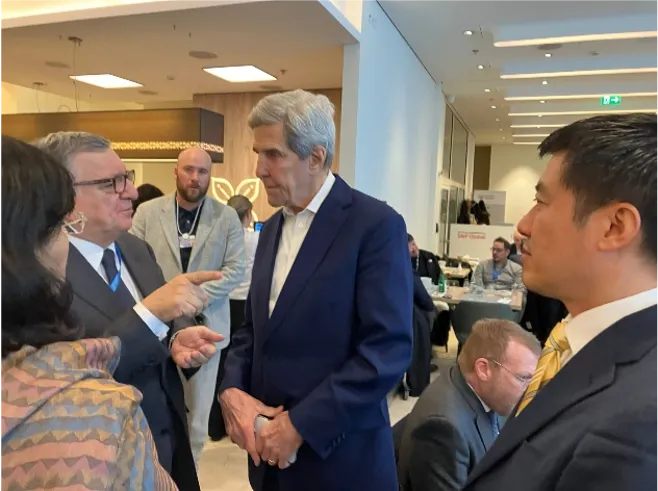
3. The Link Between Climate and Health
One of the most notable shifts in discussions was that health is no longer viewed in isolation but deeply interwoven with climate change and environmental factors.
Air pollution has direct health impacts, and rising temperatures have increased heatstroke cases to record levels, particularly affecting vulnerable populations.
Climate change is also driving the spread of infectious diseases.
Floods increase the risk of waterborne diseases like cholera, while rising temperatures expand the habitats of mosquitoes, spreading yellow fever, malaria, and dengue fever to previously unaffected regions.
Furthermore, the combination of climate change and other factors is increasing the risk of zoonotic diseases that spread from animals to humans.
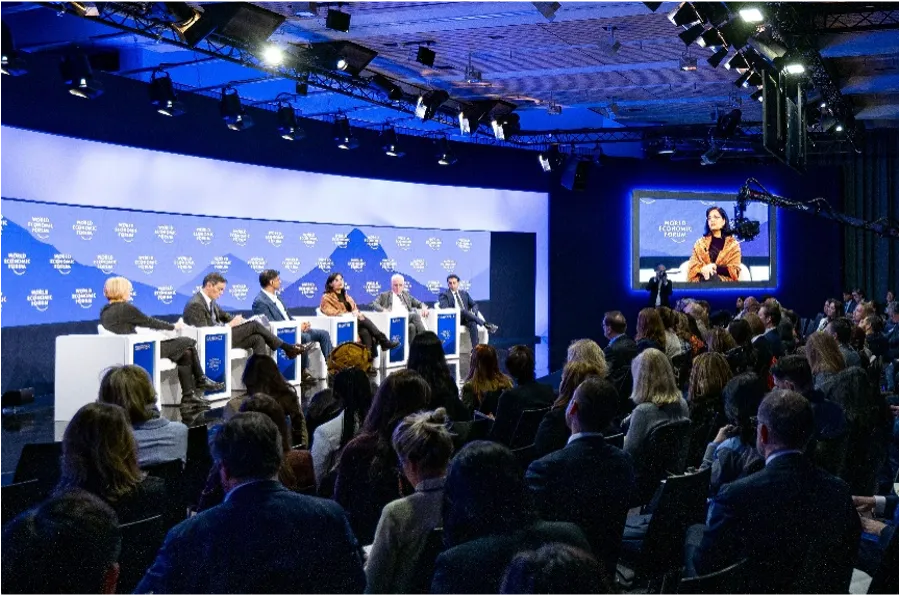
Gavi emphasized the critical role of vaccines in climate adaptation across multiple sessions.
In fact, nearly half of Gavi’s vaccines target climate-sensitive infectious diseases.
Additionally, vaccination reduces hospitalizations, which in turn lowers CO₂ emissions from the healthcare sector, contributing to climate change mitigation.
Today, the healthcare sector accounts for about 4% of global CO₂ emissions.
By strengthening immunization efforts, Gavi argued, we can better prepare for the health challenges posed by climate change.
4. Technology: The Great Equalizer and Divider
Despite political divides—between left and right, the U.S. and Europe, and conflicts over Ukraine and Gaza—one clear consensus emerged in Davos:
Technology is transforming the world at an unprecedented pace, and AI is at the forefront of this revolution.
Davos’ main street, the “Promenade,” was lined with advertisements from AI companies showcasing their latest innovations.
Yet, beneath the glitzy billboards and major announcements, uncertainty loomed.
Companies are making massive AI investments, but many are still struggling to define the real-world problems AI will solve.
Understanding AI’s impact on industries is no longer a future concern—it is an immediate challenge.
AI is not just a business tool—it is increasingly seen as a geopolitical asset.

5.The Rise of Emerging Powers
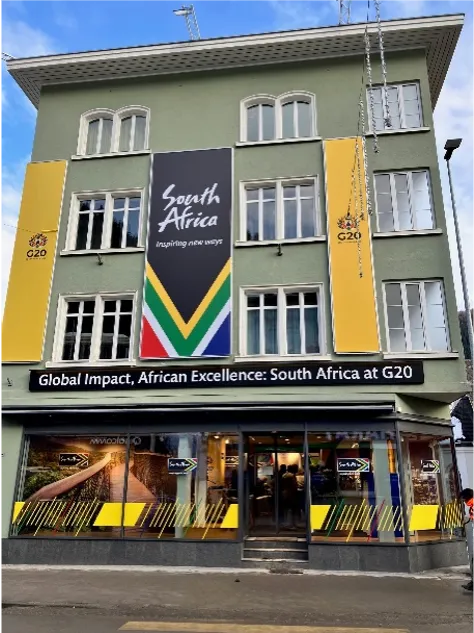
While the U.S.-China rivalry continues to draw attention, Davos revealed a broader reality.
Saudi Arabia, the UAE, Qatar, India, and Indonesia leveraged Davos as a platform to attract investment and talent, solidifying their status as rising powers.
South Africa, the next G20 host, made a bold statement with a large pavilion, signaling its ambitions for global leadership.
These nations are no longer mere invitees.
They are actively shaping their narratives, proving that the future of global influence is no longer exclusive to Western powers.
The Magic of Davos
Davos 2025 underscored the complex interplay between technological innovation, environmental sustainability, and geopolitical shifts.
Overcoming these challenges and seizing opportunities will require unprecedented collaboration.
Davos always fascinates me.
There is no other place where so many decision-makers gather at once.
Some meetings are planned, while others happen by chance, leading to groundbreaking ideas.
Let’s not forget—Gavi was first announced in Davos 25 years ago.
One of my most memorable moments this year was an unexpected encounter in a hotel lobby with the Head of State of Papua New Guinea, where we discussed drone-based vaccine delivery.
It is these serendipitous conversations that lead to transformative solutions.
Perhaps, that is the true magic of Davos.
(Yoshinobu Nagamine)
